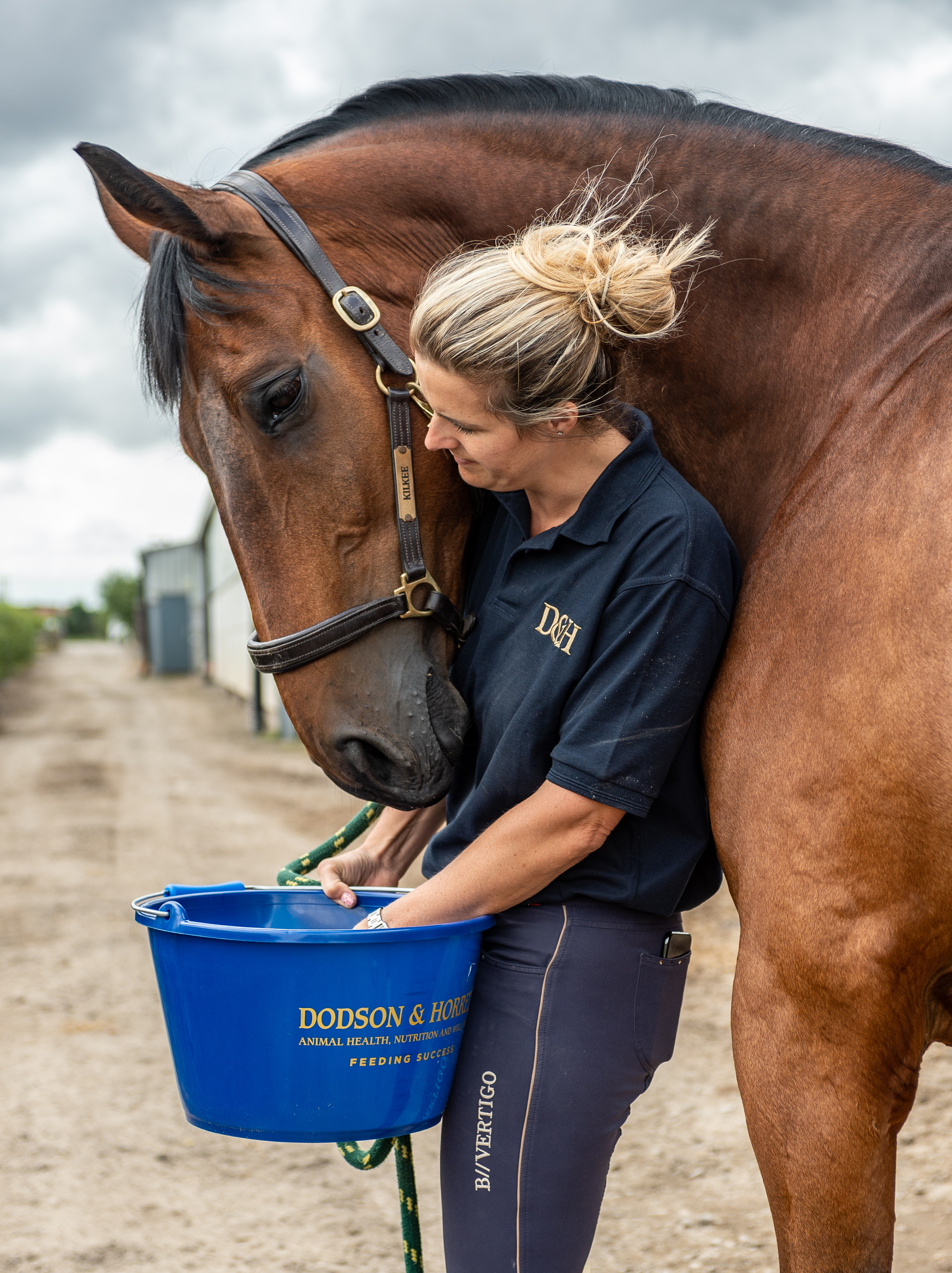A fully balanced diet is always at the forefront of our minds when formulating any ration, be that for a 5* event horse or simply a well-loved companion. For a diet to be fully balanced, it needs to meet the nutritional requirements for that horse’s specific activity level, age and breed. Even if the horse in question is a retired horse at grass, forage alone will never fully meet their vitamin & mineral requirements to support optimal health & wellbeing.
Vitamins are organic substances which are only needed in relatively very small quantities. The horse can produce some of these itself (endogenously). Vitamin C, for example, can be synthesised in the liver, other vitamins, however, will need to be provided via a suitable concentrate ration as they are not produced endogenously.
Minerals are non-organic elements which can be further divided into 2 groups: macrominerals & microminerals. It’s important to note that whilst macrominerals are required at higher quantities than micros, it’s still a small number relative to the size of the horse and other nutrients.
The most commonly discussed Vitamins are listed below along with an explanation of some of their functions;
- Vitamin A - typically ingested from grazing and concentrates and plays a vital role in the support of vision, healthy skin & coat and the immune system. Dietary deficiencies can lead to decreased fertility and other reproductive issues.
- B Vitamins - a group of 8 different vitamins that often coexist in the same foods. The most commonly referred to in terms of equine nutrition is Thiamine (B1), Riboflavin (B2) and Biotin (B7). These vitamins have a range of functions including the support of the horses’ metabolism, correct function of the nervous system, appetite stimulation & formation of healthy hoof, skin & coat.
- Vitamin C - a powerful antioxidant that helps to protect cells from damage caused by free radicals, it helps to regenerate other substances in the antioxidant system such as Vitamin E. It also plays a vital role in the synthesis of collagen, a key structural protein.
- Vitamin D - involved in the absorption of calcium and construction of the bone matrix. Vitamin D can be obtained through dietary means and through direct exposure to sunlight. Deficiencies can cause reduced mineralization of bones, leading to reduced mechanical strength and a weaker skeletal system.
- Vitamin E - the most prominent antioxidant and the body’s main non-enzymatic defence mechanism. In times of oxidative stress such as hard exercise, it works to ‘mop-up’ excess free radicals, preventing excess damage. It has also been shown to play an important role in the respiratory chain, development of immune response and in fertility.
- Vitamin K - required for bone resorption, bone metabolism and blood coagulation. Vitamin K deficiency research is extremely limited in equines.
Important minerals required in the horse's diet:
- Calcium - plays an integral role in maintaining and developing healthy bones and teeth. 99% of the calcium in the body is stored in the bone and is key to providing the structural integrity of the bone.
- Phosphorus - plays a key role in bone strength but is also a key constituent of ATP and in the formation of RNA & DNA.
- Magnesium - involved in the maintenance of healthy brain function and has been shown to support the correct and healthy activity of the central nervous system. Deficiencies have also been shown to contribute to weakened bones.
- Electrolytes - a group of minerals (Sodium, Potassium & Chloride, Magnesium, Calcium) which are lost mainly through sweating and must be replaced by a suitable electrolyte supplement. They play a key part in water distribution, muscle health & recovery.
- Iron - responsible for the creation of haemoglobin and myoglobin which are the oxygen transport proteins in the bloodstream, it also plays a part in the immune response.
- Copper - widely recognised as one of the most important minerals in the horse’s body and plays multiple factors including promoting correct skeletal growth and development, mitochondria integrity and the synthesis of keratin. Deficiencies have been shown to contribute to growth abnormalities and skeletal weakness.
- Zinc - has a vital role in the replication of both DNA & RNA. It also is found in many hoof supplements as it is shown to play a key part in the formation of healthy hoof, skin & coat.
- Selenium - an incredibly powerful antioxidant and this is its most prominent role in the body. It is also necessary for development of the immune system.

As with all nutrients, it is not only making sure that there is a presence of vitamins & minerals in isolation ensuring that there are the correct ratios present within the diet is also important.
Too much or too little of one vitamin or mineral can unbalance the diet and affect bodily processes; making sure your horses’ diet is well balanced in all areas is key to optimal health, performance and recovery.



